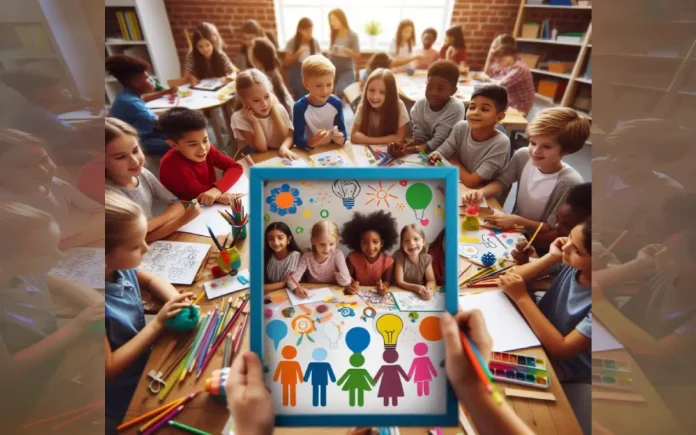In the swiftly evolving landscape of the 21st century, where innovation and creativity stand as pillars of progress, the role of education in shaping the minds of our youngest generation becomes paramount. As we navigate an era defined by technological advancements and ever-changing societal dynamics, it is crucial to recognize and harness the innate creativity of children. Education serves as the cornerstone for unlocking their potential and molding them into future innovators.
Children are inherently curious and imaginative beings, possessing an innate ability to question, explore, and create. However, the traditional education system often tends to stifle rather than nurture these qualities. The emphasis on standardized testing and rote memorization can inadvertently dampen a child’s enthusiasm for learning and hinder the development of their creative capacities.
To foster innovation, education must shift towards a more holistic approach that encourages critical thinking, problem-solving, and divergent thought. Incorporating project-based learning, where students engage in hands-on activities and real-world problem-solving, allows children to apply their knowledge in practical scenarios. This approach not only enhances their understanding of subjects but also cultivates a mindset that values creativity and ingenuity.
Furthermore, the integration of arts and creative subjects into the curriculum is vital. Music, visual arts, drama, and literature provide children with avenues to express themselves and think beyond conventional boundaries. These subjects not only stimulate creativity but also promote emotional intelligence and empathy, essential qualities for innovative thinking in a collaborative world.
In addition to curriculum changes, educators play a pivotal role in fostering creativity. Teachers should be equipped with the tools and training necessary to cultivate an environment where questioning is encouraged, mistakes are viewed as learning opportunities, and diverse perspectives are celebrated. A nurturing educational environment empowers children to believe in their capabilities and embrace challenges with resilience.
The integration of technology also plays a crucial role in preparing children for the future. Utilizing educational technologies, such as virtual reality, coding programs, and interactive simulations, can enhance learning experiences and provide a platform for creative exploration. These tools not only make learning more engaging but also prepare children for the increasingly digital world they will inherit.
As a society, we must recognize that the future lies in the hands of our children. By prioritizing and reimagining education, we can unlock the full potential of each child, fostering a generation of critical thinkers, problem solvers, and innovators. Investing in the creativity of our youth is an investment in the progress and prosperity of our global community.
In the end, we must remember that education serves as the key to unlocking the creative potential of our children. By embracing a holistic approach, valuing diverse forms of intelligence, and empowering educators, we can ensure that our educational systems become incubators for the innovative minds that will shape the future. Let us commit to providing an education that not only imparts knowledge but also instills the confidence and creativity needed for our children to thrive in an ever-changing world.



